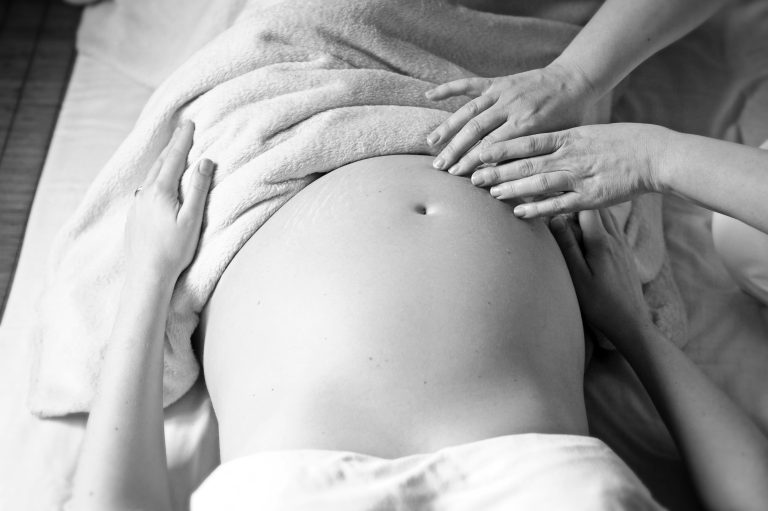Menopause is a natural life stage that typically occurs between the ages of 40 and 55, when a woman’s ovaries stop producing hormones. This process is accompanied by numerous physical and emotional changes that can significantly impact daily life. The most common symptoms include hot flashes, night sweats, mood swings, sleep disturbances, decreased bone density, and weight gain. Menopause is not an illness but the beginning of a new life phase that requires adaptation.
Why is menopause such a challenge?
During menopause, dramatic hormonal changes occur in the body, directly affecting both physical and mental functioning. Levels of estrogen and progesterone decline, leading to a variety of symptoms. For example, the lack of estrogen affects the regulation of body temperature, explaining hot flashes and night sweats. Additionally, estrogen plays a role in the production of serotonin and dopamine, neurotransmitters responsible for mood regulation. This is why mood swings, anxiety, and depression are common during menopause.
Hormonal changes also affect bone health. The lack of estrogen accelerates bone loss, which can lead to osteoporosis. Weight gain and changes in fat distribution are also common issues, posing not only aesthetic but also health-related challenges.
Menopause is not just a physical challenge but also an emotional and social one. For many women, accepting the changes that come with aging can be difficult, and societal expectations or beauty standards can add additional stress.
How does menopause affect the body?
The hormonal changes during menopause directly impact brain function, body temperature regulation, bone health, and the cardiovascular system. For instance, the lack of estrogen increases the risk of cardiovascular diseases, as estrogen plays a role in maintaining vascular health. Additionally, the decrease in bone mass raises the likelihood of fractures, especially in the hips and spine.
Menopause also affects sexual health. The lack of estrogen can lead to vaginal dryness and decreased libido, which may impact relationships. Furthermore, sleep disturbances and mood swings can contribute to a decline in quality of life.
These solutions are just examples. Everyone has different needs, priorities, and issues. What works for one person may not work for another. Experiment to find what helps you, and don’t worry if it’s unique.
- Healthy diet: Increase the intake of plant-based foods (e.g., soybeans, flaxseeds) rich in phytoestrogens, which can help restore hormonal balance. Consume calcium-rich foods (e.g., dairy, leafy greens) and vitamin D to strengthen bones.
- Regular exercise: Moderate-intensity workouts (e.g., walking, swimming, yoga) 3-4 times a week can help reduce hot flashes, strengthen bones, and regulate weight.
- Stress management: Try meditation, breathing exercises, or yoga to reduce stress and stabilize your mood.
- Omega-3 supplements: Omega-3 fatty acids can reduce inflammation and improve cardiovascular health, which is particularly important during menopause.
- Hormone replacement therapy (HRT): With your doctor’s guidance, determine if hormone replacement is right for you. HRT can help alleviate hot flashes, night sweats, and vaginal dryness.
- Psychological support: If menopause is taking an emotional toll, consider seeing a psychologist or joining a support group where you can share experiences with other women.
Menopause is not an illness but the beginning of a new life phase. Small changes can make a significant difference—try a new recipe or start practicing yoga. Remember: menopause is a natural process, and seeking help is nothing to be ashamed of!
References:
- Armour, M., Ee, C. C., Hao, J., Wilson, T. M., Yao, S. S., & Smith, C. A. (2019). Acupuncture and acupressure for premenstrual syndrome. Cochrane Database of Systematic Reviews, 2019 (8), CD005290. https://doi.org/10.1002/14651858.CD005290.pub2
- Boyle, N. B., Lawton, C., & Dye, L. (2017). The effects of magnesium supplementation on subjective anxiety and stress—A systematic review. Nutrients, 9 (5), 429. https://doi.org/10.3390/nu9050429
- Stubbs, B., Vancampfort, D., Veronese, N., Solmi, M., Gaughran, F., Manu, P., … & Carvalho, A. F. (2017). Magnesium for the prevention and treatment of depression: A systematic review and meta-analysis. Journal of Affective Disorders, 220 , 129-137. https://doi.org/10.1016/j.jad.2017.05.057
- Armour, M., Sinclair, M., Chalmers, K. J., Smith, C. A., & Webb, P. M. (2019). Herbal medicine for dysmenorrhea: A systematic review and meta-analysis of randomized controlled trials. PLOS ONE, 14 (11), e0224318. https://doi.org/10.1371/journal.pone.0224318
- Daley, A. J., Stokes-Lampard, H. J., & MacArthur, C. (2011). Exercise for treating dysmenorrhoea. Cochrane Database of Systematic Reviews, 2011 (12), CD004142. https://doi.org/10.1002/14651858.CD004142.pub2







